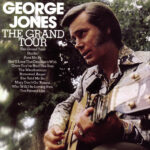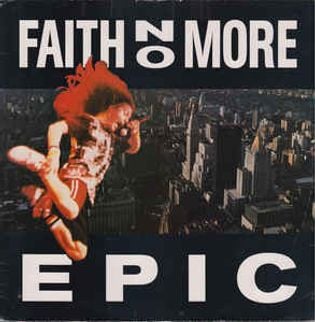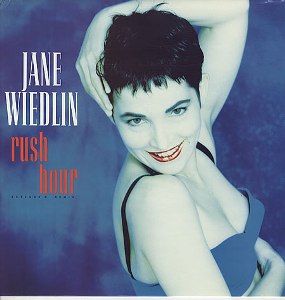 George Jones had always been more than a country singer. He was the embodiment of everything that made country music great—heartbreak, honesty, imperfection, and humanity. From the soaring highs of love to the devastating lows of addiction and regret, Jones’ voice told stories that transcended genre and time. When he recorded “Our Private Life” in 1980, he was deep in the throes of personal turmoil, but what came out of it was one of the most painfully vulnerable songs of his career—a track that captured the quiet misery of a broken marriage not through scandal or spectacle, but through the exhausted sigh of two people trying to keep up appearances.
George Jones had always been more than a country singer. He was the embodiment of everything that made country music great—heartbreak, honesty, imperfection, and humanity. From the soaring highs of love to the devastating lows of addiction and regret, Jones’ voice told stories that transcended genre and time. When he recorded “Our Private Life” in 1980, he was deep in the throes of personal turmoil, but what came out of it was one of the most painfully vulnerable songs of his career—a track that captured the quiet misery of a broken marriage not through scandal or spectacle, but through the exhausted sigh of two people trying to keep up appearances.
“Our Private Life” might not be as well-known as “He Stopped Loving Her Today” or “The Grand Tour,” but it stands as one of Jones’s most revealing and quietly devastating moments. It’s not a song about dramatic heartbreak; it’s a song about emotional rot. About what happens after love dies but the relationship lingers like a ghost.
The Setting: Love Lost in Silence
Released during a particularly fragile time in Jones’s life, “Our Private Life” came out when he was both revered and pitied in equal measure. The late 1970s had been a brutal decade for him—his marriage to Tammy Wynette had collapsed in spectacular public fashion, his addiction struggles were threatening to end his career, and his personal life was constantly tabloid fodder. But Jones was never more powerful as a singer than when his life was in ruins. That paradox defined his artistry: the more broken he became, the more truthful his music sounded.
The song opens in a hushed tone, its gentle instrumentation giving space for Jones’s voice to breathe. There’s a conversational sadness in his delivery—like a man trying to explain something he barely understands himself. The lyrics paint the picture of two people whose love has become a performance:
“Our private life is our private life, we keep it locked away inside.”
It’s not about cheating, jealousy, or betrayal. It’s about disconnection. About the rituals couples maintain when the spark is gone—the dinners eaten in silence, the polite smiles at social gatherings, the mutual understanding that they’re keeping up appearances. It’s the quiet death of intimacy, and Jones sings it not with anger, but with resignation.
A Song Built on Emotional Honesty
Country music has always thrived on emotional authenticity, but few artists embodied that ideal like George Jones. Where other singers might dramatize heartbreak, Jones internalized it. His genius was his restraint—he never needed to oversing or embellish. “Our Private Life” is the perfect example of that approach.
He doesn’t wail or cry out; instead, he delivers each line like a confession whispered across the kitchen table. You can hear the weariness in his phrasing, the sense of acceptance that comes from years of disappointment. There’s a sadness that’s deeper than sorrow—it’s fatigue.
In a way, “Our Private Life” feels like the spiritual successor to “The Grand Tour,” another song about domestic heartbreak. But where “The Grand Tour” was an emotional explosion—a man walking through the empty shell of a home once filled with love—“Our Private Life” takes place while the couple is still technically together. They’re not separated yet, but they might as well be. It’s that painful middle ground between love and loss that Jones captures so perfectly.
The Production: Simplicity as Strength
Produced by Billy Sherrill, who worked on many of Jones’s most memorable recordings, “Our Private Life” reflects the sleek, Nashville sound of the late 1970s and early 1980s. Yet beneath that polish, the song still feels raw. Sherrill knew how to use space—how to let the quiet moments breathe.
The arrangement is sparse but rich: a slow, steady rhythm, soft piano accents, and steel guitar sighs that echo Jones’s voice like an emotional counterpart. The production doesn’t overpower him—it surrounds him. Every note seems to hang in the air, as if the instruments themselves are hesitant to intrude on something so personal.
The combination of Jones’s lived-in voice and Sherrill’s patient production turns “Our Private Life” into something that feels more like a private recording session than a commercial release. It’s almost voyeuristic in its intimacy, like we’re eavesdropping on someone’s confession.
Context: The Public Life Behind “Our Private Life”
The irony of “Our Private Life” is that it came from one of the least private public figures in country music. Jones and Wynette’s marriage had become part of the national conversation—every fight, every reconciliation, every tabloid headline fed into the mythos of “country’s first couple.”
By the time he recorded this song, Jones was battling his demons publicly. His “No Show Jones” reputation—earned because of frequent concert absences due to drinking—was both a curse and a brand. And yet, despite everything, fans never turned on him. They knew what he was going through. His struggles made him human, and his music made him immortal.
“Our Private Life” feels like a subtle response to all of that noise. It’s almost as if Jones is saying, you think you know my story, but you don’t know the half of it. The public might see the headlines, but they don’t see the quiet moments—the long silences, the empty rooms, the half-hearted smiles. That’s what this song captures: the private despair behind the public spectacle.
Jones’s Vocal Brilliance: Pain Without Theatrics
If you strip away everything else—the production, the history, the myth—what’s left is the voice. That voice. George Jones’s gift was that he could make even the simplest lyric sound profound.
In “Our Private Life,” he doesn’t have to raise his voice to make you feel something. He stretches words just enough to let the ache sink in, bending syllables into emotion. He sounds like a man trying to keep it together, and that restraint makes it all the more heartbreaking.
There’s also a unique balance of empathy and guilt in his tone. You can tell he’s not pointing fingers. The song isn’t about blame—it’s about the slow erosion of something sacred. And in that way, it’s universal. Anyone who’s ever been in a dying relationship recognizes that feeling of quiet surrender.
A Study in Subtle Tragedy
“Our Private Life” is a masterclass in understatement. Unlike some of Jones’s other heartbreak anthems, this song doesn’t rely on dramatic narrative or clever storytelling. It’s not a tale of betrayal or revenge—it’s a portrait of two people stuck in emotional limbo.
The tragedy is in what’s unsaid. The song leaves room for the listener to fill in the blanks, which is what makes it so powerful. We don’t know exactly what went wrong, and we don’t need to. The point is that the love is gone, but the relationship lingers out of habit or obligation.
That’s what makes it more painful than a breakup song—it’s about the endurance of misery. It’s about pretending, about performing happiness for the world while suffering in silence. And Jones captures that feeling without judgment or melodrama.
Legacy: A Song for the Broken and the Honest
Though it’s often overshadowed by Jones’s more famous hits, “Our Private Life” deserves to be remembered as one of his most mature, emotionally honest recordings. It doesn’t have the sweeping drama of “He Stopped Loving Her Today,” but in its quiet way, it’s just as devastating.
In fact, the song can be seen as a kind of prelude to that masterpiece. It captures the stage before the final heartbreak—the limbo where the love is gone but the routine remains. “He Stopped Loving Her Today” is the death of love; “Our Private Life” is the slow dying.
Jones’s influence on generations of artists—from Alan Jackson to Chris Stapleton to Sturgill Simpson—owes much to songs like this. They taught future singers that real country music isn’t about fireworks—it’s about truth. It’s about looking pain in the eye and saying, this is how it feels.
Why It Still Resonates
More than forty years later, “Our Private Life” still feels relevant because its subject matter hasn’t changed. Relationships still crumble behind closed doors, and people still pretend everything’s fine in public. Social media may have replaced gossip columns, but the dynamic remains the same.
In today’s world—where everyone curates an image of happiness online—the song’s message feels almost prophetic. We live in an age of performance, of “public lives” that are carefully crafted to hide the pain underneath. “Our Private Life” strips that illusion away. It’s a reminder that authenticity—no matter how uncomfortable—is the only thing that truly connects us.
Conclusion: The Truth Hurts, But It Heals
“Our Private Life” may not be George Jones’s most famous recording, but it’s one of his most honest. It captures the heartbreak that happens not in dramatic endings, but in quiet continuations—the love that lingers long after it should have died.
Through its restrained performance, elegant production, and devastating simplicity, it becomes more than just a country song. It’s a mirror held up to every broken heart that’s ever tried to keep up appearances.
And maybe that’s why it still matters. Because while Jones sang of private pain, he made it public in the most humane way possible. He gave a voice to the silence between couples, the sadness that hides behind smiles. And in doing so, he reminded us that even in our private lives, we’re never truly alone in our suffering.
In “Our Private Life,” George Jones didn’t just sing about heartbreak—he understood it.


